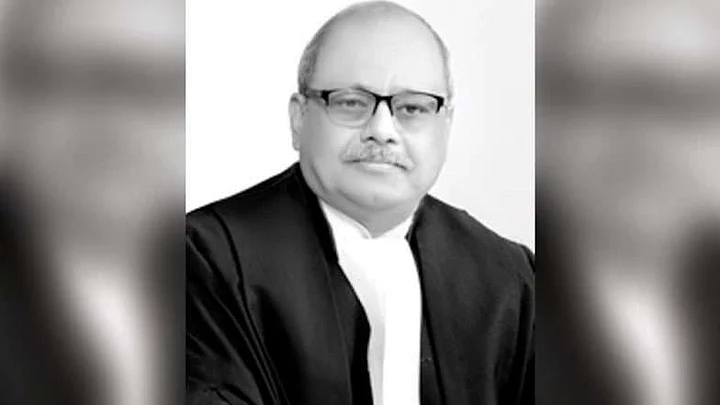Justice Pinaki Chandra Ghose, former Supreme Court judge, is officially India’s first Lokpal or anti-corruption ombudsman.
Two days after his name was finalised and recommended by the Selection Committee, he was appointed by President Ram Nath Kovind on Tuesday, 19 March. The committee comprised Prime Minister Narendra Modi, Chief Justice Ranjan Gogoi, Lok Sabha Speaker Sumitra Mahajan and eminent jurist Mukul Rohatgi.
Congress leader Mallikarjun Kharge, who is part of the committee, did not attend the meeting.
Who is PC Ghose?
Sixty seven-year-old Justice Ghose, who is a member of the National Human Rights Commission since June 2017, retired from the apex court on 27 May 2017. He had assumed charge as an SC judge in March 2013.
In July 2015, an SC bench of Justice Ghose issued notice to late former Tamil Nadu Chief Minister J Jayalalithaa on a petition by the Karnataka government challenging the high court verdict acquitting her and three others in a disproportionate assets case.
He is a former judge of the Calcutta HC and former Chief Justice of the Andhra Pradesh HC.
From Kolkata to Lokpal
Born in Kolkata, Justice Ghose is son of Late Justice Sambhu Chandra Ghose, former Chief Justice of Calcutta HC.
Graduating in Commerce from St.Xavier's College, Calcutta, Justice Ghose completed graduation in law from University of Calcutta and obtained Attorney-at-Law at Calcutta HC, and enrolled himself as an advocate on 30 November 1976, with Bar Council of West Bengal.
He practised in civil, commercial, arbitration, constitutional and company matters both in the original side and appellate side at Calcutta HC.
On 17 July 1997, Justice Ghose was elevated as a permanent Judge of HC at Calcutta. He held the post of Executive Chairman, Andaman and Nicobar State Legal Services Authority and Executive Chairman, State Legal Services Authority, West Bengal, since 2 January 2007 and1 August 2007 respectively.
Since 14 January 2005, he was associated with Indian Law Institute (Calcutta Chapter) and acted as the Treasurer of the Indian Law Institute till 2012. He Was Chairman of Institutional Ethics Committee of National Institute of Cholera and Enteric Diseases, Kolkata.
The Lokpal Act
Justice Ghose’s appointment has come nearly five years after the Lokpal Act was notified on 16 January 2014.
The law provides for a Lokpal at the Centre and Lokayuktas in states to probe cases of corruption against public servants.
The SC, hearing a PIL filed by NGO Common Cause, represented by advocate Prashant Bhushan, has been pushing the government to make the appointments. In its hearing on 4 January, the apex court had asked the government to appoint a Lokpal at the earliest, saying "much time has elapsed, something needs to be done".
On 17 January, the SC had pulled up the Centre for repeatedly delaying the appointment of the Lokpal. On 7 March, a bench headed by Chief Justice of India Ranjan Gogoi had asked the Modi government to inform the court within a fortnight by when it would finalise the names.
Delayed for some reason or the other, the search committee was constituted on 27 September 2018, after the SC’s intervention and former SC judge Ranjana Prakash Desai was nominated to head it.
(At The Quint, we question everything. Play an active role in shaping our journalism by becoming a member today.)
